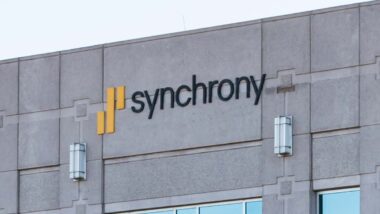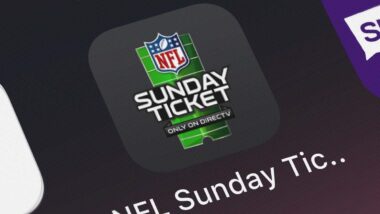Multiple bank NSF fees: Who’s affected?

Has a Citizens Bank, Regions Bank or Fifth Third Bank charged you more than once for a bounced payment? You may be entitled to get some of your money back.
Federal and state government agencies have cracked down on the number of times banks can charge non-sufficient funds, or NSF, fees for a single unpaid transaction, allowing only one.
However, some banks may have charged another fee when you or the payee attempted to resubmit the charge before you had time to add money to your account.
While some banks informally waive fees for otherwise good customers, bank contracts frequently require that any challenges to fees be settled through arbitration, which could force the customer to lay out about three times more than each late fee. Sometimes arbitration charges are repaid.
Do you qualify?
Did you pay fees multiple times for non-sufficient funds on a bounced check or electronic payments at Citizens Bank, Fifth Third Bank or Regions Bank? You may be eligible to recoup some of those fees.
Please fill out the form on this page for more information.
Reining in non-sufficient funds fees
If the federal government passes new proposed legislation, the regulations on all bank fees will get tougher.
Most big banks have already stopped charging fees for non-sufficient funds, the term used when an account does not have enough money in it to cover a payment. This does not include overdraft fees charged when a bank makes a payment your account doesn’t cover and that you pay back later. Many banks have eliminated those fees, as well.
Some banks, particularly smaller ones, still charge NSF fees, but even if the bank has reduced those fees, if you have paid more than once per bounced payment, you may be able to recoup money.
Payment problems
Customers are complaining about multiple fees that three banks had been charging, sometimes without notice, until they changed their fee structure:
- Fifth Third Bank: $37 fee (before June 1, 2022)
- Regions Bank: $36 fee (before June 30, 2022)
- Citizens Bank: $35 fee (before Sept. 26, 2022)
A typical consumer complaint looked something like this:
- An individual wrote a check for rent in 2021. The check bounced, and the bank charged the renter $35. Then, a few days later, the landlord tried to cash the check again. The check bounced again, and the bank charged the renter another $35 fee.
- A customer set up automatic bill pay for their cable bill via ACH, which is short for automatic clearing house, the primary system agencies use for electronic fund transfers. When the cable company tried to debit the customer’s account and they had non-sufficient funds, the bank refused to pay the bill and charged the customer $35. If the cable company were to try to debit the account again for the same bill, and the customer still didn’t have the funds in their account, the bank shouldn’t charge them another fee.
- A consumer received a surprise notice that they are being charged for insufficient funds to pay for something through their bank account. They assume it’s a mistake or that a deposit hadn’t yet cleared and tell the payee to submit the charge again. The consumer is charged another fee, and the bill is still not paid.
Banks lose big time
The Consumer Financial Protection Bureau (CFPB) estimates consumers are saving $2 billion annually on NSF fees since most of those fees have been eliminated. The CFPB is leading the charge against unfair practices that prey on people already in financial trouble. As of last year, nearly two-thirds of banks with more than $10 billion in assets eliminated NSF fees.
These fees and the large profits the banks accrued were often borne by households with low earners, some of whom knowingly bounced payments to buy time on rent, mortgages, phones, food and other necessities. Utilities may be cut off for nonpayment, although many states put temperature, date or age limits on electricity shutoffs. Yet at some point, the bills must be paid.
The fine print
Experienced mass arbitration lawyers have combed the fine print on bank account contracts you may not have had the time or patience to read closely. They’ve found omissions and discrepancies to make arbitrators take notice of what a reasonable person would deem unfair charges, and for which you may be able to seek compensation.
Join a non-sufficient funds fees mass arbitration investigation
If you were charged more than one fee per a single unpaid bank transaction at Fifth Third Bank, Citizens Bank or Regions Bank, you may qualify to participate in a mass arbitration investigation.
Please fill out the form on this page to see if you qualify for a FREE case evaluation.
See If You Qualify
Join a Citizens, Regions, Fifth Third Bank NSF fee lawsuit investigation
By submitting your information, you agree to receive communications from Top Class Actions and to be contacted by an attorney or law firm or their agents to discuss the details of your potential case at no charge to you if you qualify.
After you fill out the form, an attorney(s) or their agent(s) may contact you to discuss your legal rights.
ATTORNEY ADVERTISING
The choice of a lawyer is an important decision and should not be based solely on advertisements.
PAID ATTORNEY ADVERTISEMENT: THIS WEB PAGE IS AN ADVERTISEMENT AND THE PARTICIPATING ATTORNEY(S) ARE INCLUDED BECAUSE THEY PAY AN ADVERTISING FEE. Top Class Actions is not a law firm, lawyer referral service, or prepaid legal services plan. We do not endorse or recommend any third-party claims processing company, lawyer, or law firm who participates in the network. We do not make any representation, and have not made any judgment, as to the qualifications, expertise, or credentials of any participating lawyer or processing group. No representation is made that the quality of the legal services or claims processing to be performed is greater than the quality of legal services or claims processing performed by other lawyers or claims processing group. The information contained herein is not legal advice. Any information you submit to Top Class Actions does not create an attorney-client relationship and may not be protected by attorney-client privilege because Top Class Actions is not a law firm. Instead, your information will be forwarded to an attorney(s) or their agent(s) or a claims processing firm for the purpose of a confidential review and potential representation if you qualify. You will only be contacted by an attorney(s) or their agent(s) in response to your inquiry if your initial information appears to qualify you for representation. If you are not contacted by an attorney(s) or their agent(s) within one week, you should consult another firm since all legal claims are subject to filing deadlines. All photos on this website are stock art and do not depict clients.












